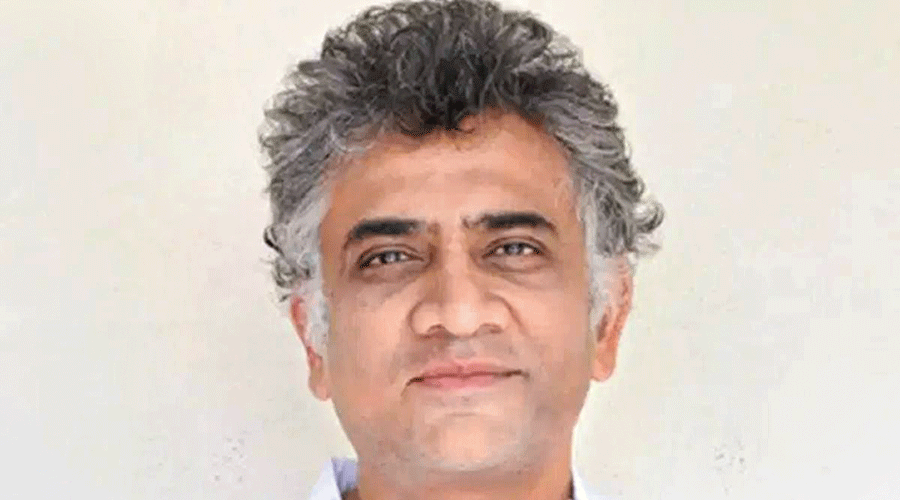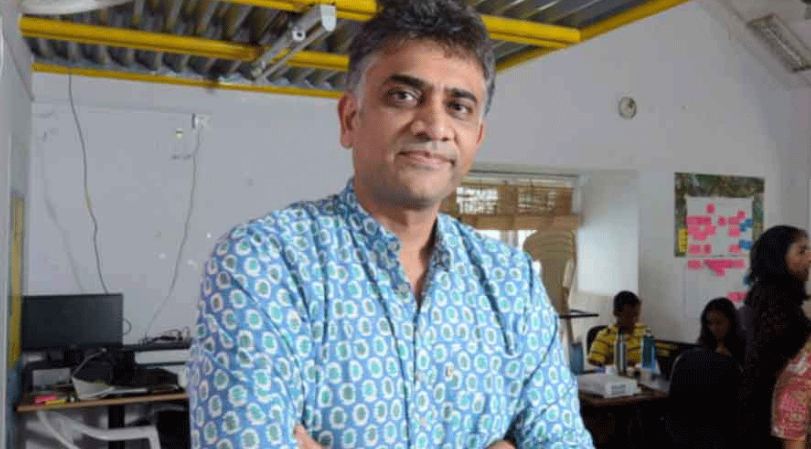A Delhi court on Saturday said Amnesty International India chairperson Aakar Patel was free to fly abroad subject to conditions, upholding a magistrate’s order that had asked the CBI to withdraw a lookout circular issued against Patel for alleged foreign exchange violations.
Special CBI judge Santosh Snehi Mann, however, set aside parts of additional chief metropolitan magistrate (ACMM) Pawan Kumar’s order that had nudged the CBI director to tender a written apology and had sought the fixing of “accountability” on the officials behind the lookout circular.
“The manner in which LOC (lookout circular) has been issued by the CBI shows lack of understanding of the relevant law, and hence need for orientation of the concerned officers of CBI, not only for sensitisation but also to bring objectivity in the actions,” Mann said.
The travel conditions for Patel are:
⚫ He must appear before the trial (ACMM) court within a week and must furnish a bond, to the satisfaction of the trial court, under Section 88 CrPc.
⚫ He cannot leave the country without the trial court's permission.
Under Section 88 CrPC, a person executes a bond with or without sureties that he would appear before the court if summoned, or before any other court to which the case may be transferred.
"Accused had joined investigation, whenever called and it is not the case of the CBI that accused in any manner either tried to hamper the investigation or tamper with the evidence. Investigation is complete and the matter is at the stage of consideration of the chargesheet by the trial court for cognisance," Mann's order said.
"Once the matter is in the court, circumstances warranting opening of LOC will arise only when the respondent accused does not appear in the trial court despite NBWs (non-bailable warrants) and other coercive measures. LOC in this case was issued on completion of investigation for the reason that being an influential person and well connected with entities outside India, respondent accused may leave the country to evade the process of law. This reason does not fall in the situations and circumstances required for opening/ issuance of LOC per law and thus has no force of law."
The court mentioned the case of journalist Rana Ayyub, whom Delhi High Court had allowed to travel abroad after Mumbai airport authorities had stopped her citing an Enforcement Directorate lookout circular.
Mann quoted a Supreme Court order in IPS officer Satish Chandra Verma vs Union of India, saying: "It was held that freedom to go abroad has much social value and represents the basic human right of great significance."
It is a settled legal proposition, Mann said, that a trial court can step in to compensate for police excesses and illegal action by the State when fundamental rights are violated.
Patel says the CBI had never informed him about the lookout circular, on the basis of which he was prevented at Bangalore airport from boarding his flight to the US on April 6.
The next day, Kumar's court directed the CBI to withdraw the circular and expressed the opinion that a written apology from the agency director "acknowledging the lapse on the part of his subordinate" would help heal wounds and restore public trust.
But at midnight on April 7, Patel was again prevented from flying out of Bangalore airport. On April 8, Mann's court stayed Kumar's order on a CBI plea.
Accountability
Mann cautioned the CBI that its powers of investigation and prosecution are not "unbridled".
"Power of the CBI to investigate and prosecute is not an unbridled power. In glaring cases of excesses committed in actions, there may arise the need for fixing accountability," he said.
"In the present case, LoC was issued on wrong interpretation and understanding of law, and not out of any malice or ill will. Hence, it is not a fit case to call for fixing the accountability for issuance of LoC."
Kumar had sought that "accountability… be fixed", asserting the circular stemmed from not "oversight or ignorance" but a "deliberate act… to put restriction on the valuable rights of the accused".
Mann said the trial court's observations against the CBI "are not of the nature of exercising power of superintendence, they are out of concern and the petitioner (CBI) is expected to take them in the right spirit".
Compensation
Kumar had allowed Patel "to approach the appropriate forum for the compensation for the loss caused to him".
Mann said: "On account of wrongly issued LoC, respondent accused was stopped at the airport and he could not take the scheduled flight. So observation of the trial court about the right of the respondent accused to file a claim for compensation is not out of context.
"Though, whether the respondent accused would be held entitled to get compensation, would be a subject matter of a separate independent trial before the court of competent jurisdiction."
Apology
"Mental harassment will be a component for consideration by the court for determination of compensation. Since determination of the compensation was not a subject matter before the trial court (magistrate court), there was no scope to venture into aspect of mental harassment," Mann said.
In this context, "direction of the trial court to the director, CBI, to give written apology to the respondent accused, acknowledging the lapse on the part of his subordinate, to compensate for mental harassment, cannot sustain and is liable to be set aside".
Contempt plea
After Patel was stopped at Bangalore airport at April 7 midnight, when Kumar's order was still in operation, his lawyers had moved a contempt petition with the ACMM's court.
That plea is yet to be heard since the CBI had almost at the same time challenged the magistrate's order in Mann's court and obtained a stay.
Patel's lawyers said they would now pursue the matter.
Patel says he has found out that the lookout circular - connected to raids on Amnesty offices in Bangalore and Delhi in November 2019 - was issued only on December 31 last year.
He has emphasised that this was just six weeks after the November 14, 2021, launch of his book, Price of the Modi Years, which takes a critical look at Prime Minister Narendra Modi's record of governance.












